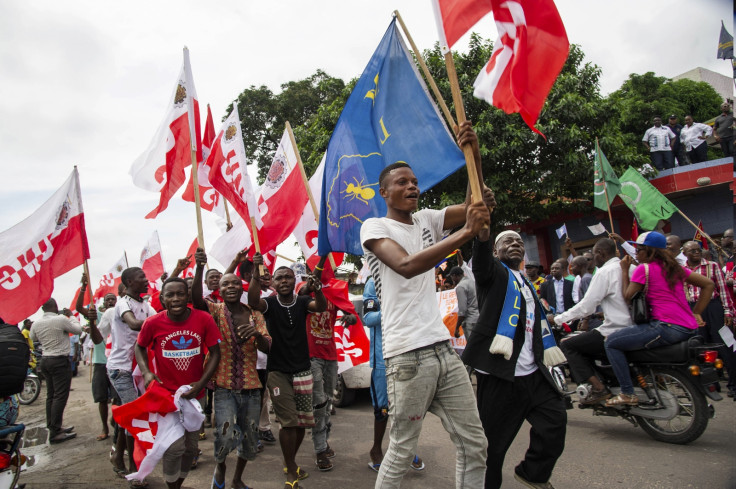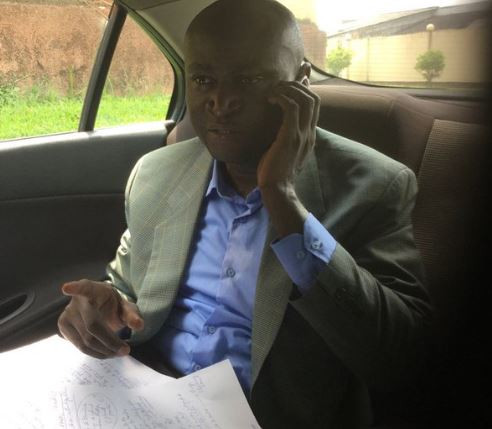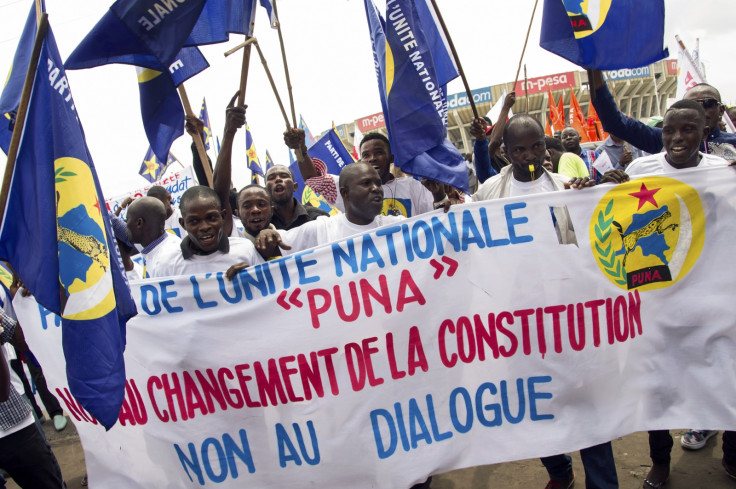DRC elections: MP Juvenal Munubo Mubi calls for urgent international-backed dialogue

Congolese Member of parliament Juvenal Munubo Mubi has urged the international community to promote the idea of a facilitator panel already proposed by parts of Democratic Republic of Congo (DRC)'s opposition to resolve the electoral impasse.
Under DRC's constitution the president is allowed only two terms, and incumbent Joseph Kabila has so far refused to guarantee relinquishing power after polls due in November, when his second term ends. The Kabila-led government, which denies it is deliberately delaying the elections, has been pushing for a "national dialogue" to discuss the organisation of elections, and resolve the nation's political deadlock.
A coalition of opposition parties and activist groups - including the G7 and the Dynamique de l'Opposition - have rejected the possibility of a national dialogue, which it believes is a manoeuvre to extend Kabila's mandate.
On 11 May, a top court ruled that Kabila could remain in power after expiration of his second full term in office if the government failed to hold presidential elections in November 2016.
A national dialogue with 'international' facilitator panel
Speaking exclusively to IBTimes UK, Mubi, who is MP for Walikale territory in North Kivu province for the opposition Union for the Congolese Nation (Union pour la Nation Congolaise, UNC), said only a facilitator panel could help push the national discussion forward, as long as it has an "international guarantee".
Mubi, who is also the UNC's Secretary General in charge of External Relations works alongside opposition heavyweight Vital Kamerhe, said that without a dialogue, "it is evident President Kabila will not want to hold the elections".

"However, this dialogue would be different to that proposed by Kabila, because the one he wants is tailored to play in his favour - giving positions to his entourage, for instance - which is something that has always happened here," Mubi explained over the telephone.
In his view, the panel would need to include the United Nations, the European Union, the African Union, the international organisation of the Francophonie, and could eventually include the United States (US), United Kingdom and Belgian Special Envoys to the Great Lakes region.
Formulating ideas for the 'After-Kabila'
Mubi echoed the views of the largest opposition party, the Union for Democracy and Social Progress (UDPS), which in theory backs the dialogue but insists on an international mediator and no delay to the presidential elections.
"The discussion should not be limited to how to organise the elections - it should also propose alternatives to political actors as they already have our propositions. One of those being that the focus on the presidential elections - and that local elections are not held before the presidential and legislative elections," Mubi said.
Backed by a strong engagement of the international community, the outcome of the discussion should be a fixed electoral calendar and a set of ideas for the 'after-Kabila', which includes resolving the alternance (political changeover) issues linked to the period after 19 December 2016.
The MP warned that a failure by both the Congolese and international actors to act would increase the uncertainties and risks of violence.
"After that date, there will be no more constitutional basis to his power. Should we extend it for a few months with a real interim presidency? Should we follow the Constitution which says in the Article 75 stating that the President of the Senate fills the position (in interim) left vacant by Kabila's absence and legal permanent disability just the time to prepare elections?"

Divided opposition needs to come together
According to the MP, only a panel-led discussion could "force the G7 and the Dynamique de l'opposition to join the rest of the opposition at the negotiations table", in order to create a block.
Mubi says holding elections in time can only happen if the opposition agrees to discuss a roadmap, which he believes would "reassure the Congolese opinion is that the process in engaged".
"If we say that if the process starts with specific dates and in compliance with the Constitution, both national and international opinion will restore trust in the electoral process. We will only able to understand that material or technical difficulties exist if, at least, a clear political will to organize elections is manifested."
The parliamentary added: "What is not excusable, however, is that we continue on the route we have taken without a date, without a commitment, without a solution for the after-Kabila."
This week, former planning minister Olivier Kamitatu also exclusively told IBTimes UK members of the opposition may decide to sue Kabila for "high treason" if it can prove he is going against or intends to go against the constitution by deliberately sabotaging the electoral process.
Meanwhile, senior DRC officials face the imposition of sanctions led by the US if Kabila stays in power beyond his electoral mandate. The warning from the US Embassy in the Congolese capital Kinshasa, revealed by IBTimes UK earlier in May, is set against the backdrop of an ongoing so-called "sham trial" of Kabila's popular opponent and presidential candidate, Moise Katumbi.
The election in 2016 could represent the first democratic transition of power after decades of civil war, political instability and deadly coups in DRC.
© Copyright IBTimes 2025. All rights reserved.






















